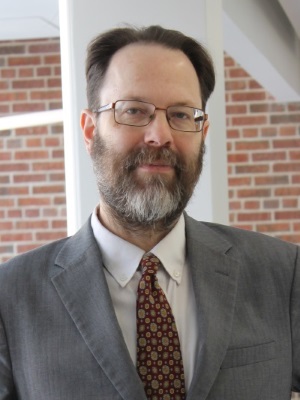Community Collaborations: Social Work faculty and students work to Dismantle the School-to-Prison Pipeline (DSTOPP) intruding on Detroit's bright youth
According to the Michigan ACLU, 68 percent of Michigan's prisoners identify as high school dropouts and the odds of dropping out are even greater for Detroit's Black students as they contend with higher suspension and expulsion rates than their white counterparts. With the support of the Spencer Foundation and Focus: HOPE, Wayne State University (WSU) School of Social Work Associate Professor Richard Smith is collaborating with Detroit-area community members and organizations to dismantle the school to prison pipeline (DSTOPP) as a member of the Urban Learning and Leadership Collaborative (ULLC).
Convened by Focus: HOPE in 2012, the ULLC is a research-practice partnership that meshes local knowledge and university resources to create innovative, inquiry-based solutions to challenges identified by neighborhood residents in Detroit. ULLC projects are based in the HOPE Village in central Detroit, which is comprised of roughly 100 blocks that intersect North Central Detroit and Highland Park. HOPE Village is home to Focus: HOPE and other community-serving institutions including two K-8 Charter Schools: NPFE Glazer Academy and Joy Preparatory Academy. WSU's School of Social Work Associate Dean for Research Joanne Sobeck was a founding academic member of the ULLC, as well as staff of the University of Michigan and Michigan State University. This collaborative model honors the unique and equally important contributions and expertise that academics, practitioners, and community member partners bring, while also growing the group's collective social and intellectual capital for community good.

As a co-Principal Investigator on DSTOPP, Smith collaborates with the interprofessional, multi-institutional DSTOPP team lead by Principal Investigator Camille Wilson of the University of Michigan School of Education and supported by co-Principal Investigator Jasahn M. Larsosa, director of Advocacy, Equity & Community Empowerment at Focus: HOPE. The funder of DSTOPP, the Spencer Foundation, is a leading national foundation that supports educational research. This $400,000 grant award will facilitate the ULLC's ability to solicit, vet, and support community-based research initiatives that seek to promote equitable educational access, fair discipline, and restorative justice in Detroit's schools while also integrating antiracist and pro-Black learning into schools systems in general. In partnership with the ULLC, DSTOPP seeks to nurture the aspirations, well-being and development of all young bright students of color endangered by the school to prison pipeline, through initiatives such as restorative justice practices in Detroit middle schools and innovative early literacy programming for children of incarcerated parents.
DSTOPP launched in May 2020 with Smith serving as the liaison between DSTOPP and the ULLC. Smith has already started to engage MSW students into DSTOPP and the work of community partners. Students have been working with Focus: HOPE on outreach and recruitment, including a series of online "meet and match" activities designed to pair university researchers with community organizations and youth residents. Smith will also be collaborating on the evaluation of the ULLC process, as well as research dissemination strategies back to the community.
Smith is building on the work of Sobeck, who collaborated with the ULLC on a two-year project called Citizenship for Health, funded by the Kettering Foundation. This project involved a series of in depth deliberative dialogues with the HOPE Village Residents that led to the development of a localized health information web portal. WSU's Professor of History Marc Kruman, director of The Center for the Study of Citizenship, co-lead this project with Sobeck. As part of Smith's community building and development course, students supported Citizenship for Health and other activities, such as Focus: HOPE for neighborhood surveys on community strengths.
I am glad to see my students involved in such impactful Detroit-based research. DSTOPP provides an opportunity for students to make connections between social work practice and the broader struggles to advance human rights and social justice. As social workers, we are perfectly poised to work closely with community organizations, groups and individuals to advance goal of dismantling the school to prison pipeline in Detroit. - Richard Smith, Associate Professor and Lead Teacher for the MSW Innovation in Community, Policy, and Leadership concentration
The ULLC will be expanding in the coming months as it funds mini-grants to a cohort of Detroit-based inquiry teams, comprised of academic and community researchers with a focus on the schools and neighborhoods surrounding Focus: HOPE's campus in north-central Detroit. Youth researchers will be included, trained, and mentored throughout this process.